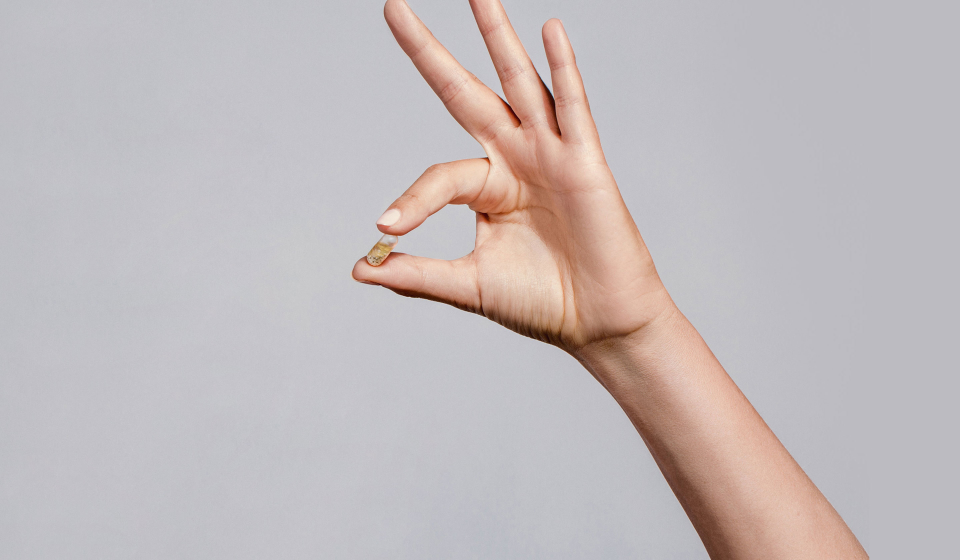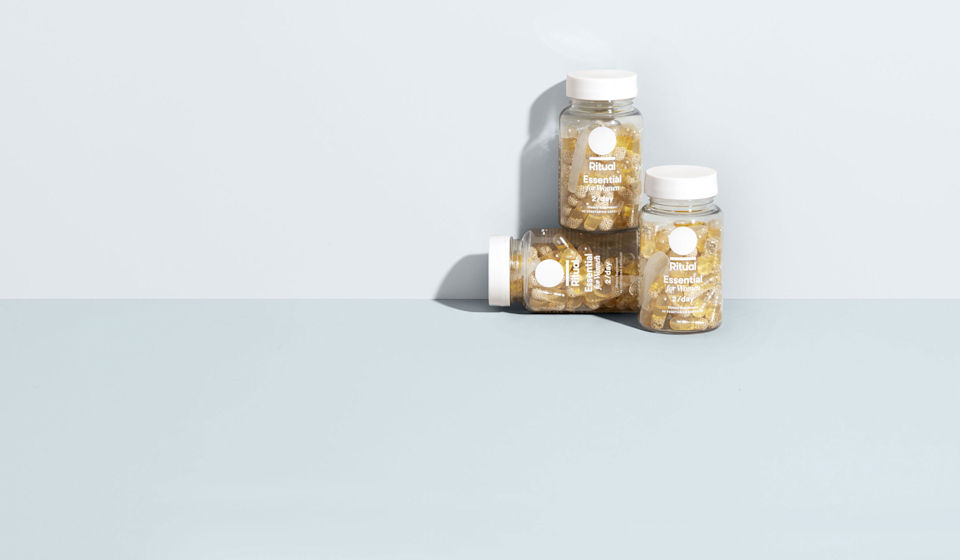Essential Takeaways
- Methylated folate is better than the other common form, folic acid, because all women can utilize folate.
- Your body needs more choline, biotin and iodine when you’re pregnant.
- After you have a baby, your nutritional needs shift again.
Ritual was born when our founder, Kat, was pregnant with her first child and realized she had no idea what was inside her prenatal vitamin. So, you could say that prenatal vitamins are in our brand DNA. But Essential for Women (EFW) is not a prenatal vitamin. It’s a daily vitamin for women ages 18-50. Essential for Women was our first product launch because we thought it was important to create a transparent vitamin that would help the most women possible. But we’ve never forgotten our prenatal roots.
We’ve been working on a prenatal formula (and many others) since day one. But like all good things, research takes time. Our product development process begins with obsessive amounts of research and a lot of time spent searching for the best scientifically proven ingredients from around the globe. This is especially true of our prenatal product development because mom and baby require more nutrients. More nutrients = more research. We’re taking our time to get it right, but we hope to have an update on our prenatal formula soon.
In the meantime, a lot of customers have been asking us if they can continue taking Essential for Women when they become pregnant. It’s important to note that Essential for Women is not a prenatal vitamin and that you should always talk to your doctor before you decide to take something new when you’re pregnant. That said, here’s everything you need to know about Essential for Women if you’re pregnant.












